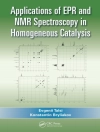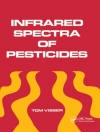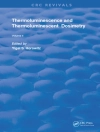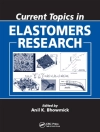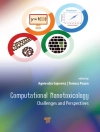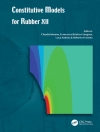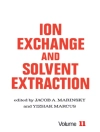This book articulates the role of biotechnology in reducing waste, thereby envisaging a zero-waste environment. It explains perspectives in waste management like anaerobic co-digestion, integrated biosystems, immobilized enzymes, zero waste biorefineries, microbial fuel cell technology, membrane bioreactors, nano biomaterials, etc. This book is invaluable for those interested and working in sustainability. So far, there is no book that comprehensively sums up the state of the art of these bio-based technologies in shaping the future of reuse, recycling and recovery of value-added substances. It includes modern technologies of bioconversion and biotransformation along with detailing the concept of circular economy. In a nutshell, it efficiently guides on the path to sustainable products from waste.
Tabla de materias
PART A – Modern Perspective of Zero Waste Drives
1 Anaerobic co-digestion as a smart approach for enhanced biogas production and simultaneous treatment of different wastes
2 Integrated approaches for the production of biodegradable plastics and bioenergy from wastes
3 Immobilized enzymes for bioconversion of waste to wealth
PART B – Bioremediation for Zero Waste
4 Bioremediation of Toxic Dyes for zero waste
5 Bioremediation of heavy metals
6 Bioremediation of pesticide containing soils and waters
7 Bioremediation of plastics and polyethene in marine water
PART C – Biological Degradation Systems
8 Microbes and their consortia as essential additives for the composting of solid waste
9 Biodegradation of plastics by microorganisms
10 Enzyme technology for the degradation of lignocellulosic waste
11 Usage of microalgae: A Sustainable approach to wastewater treatment
PART D – Bioleaching & Biosorption of Waste: approaches & utilization
12 Microbes and agri-food waste as novel sources of biosorbents
13 Biosorption of heavy metals and metal complexed dyes under the influence of various physicochemical parameters
14 Recovery of precious metals from electronic and other secondary solid waste by bioleaching approach
PART E – Bioreactors for Zero Waste
15 Photo biological reactors for the degradation of harmful compounds in waste waters
16 Bioreactors for the production of industrial chemicals and bioenergy recovery from waste
PART F – Waste2Energy with Biotechnology: Feasibilities and challenges
17 Utilization of microbial potential for bioethanol production from lignocellulosic waste
18 Advancements in bio-hydrogen production from waste biomass
19 Reaping of bio-energy from waste using Microbial Fuel Cell Technology
20 Application of sustainable mircoalgal species in production of bioenergy for environmental sustainability
PART G – Emerging Technologies (Nano Biotechnology) for Zero Waste
21 Nano materials and biopolymers for the remediation of polluted sites
22 Biofunctionalized nano materials for sensing and bioremediation of pollutants
23 Biogeneration of valuable nano materials from food and other wastes
24 Biosynthesis of nanoparticles using agriculture and horticulture waste
25 Nanobiotechnology- a green solution
26 Novel biotechnological approaches for removal of emerging contaminants
PART H – Economics & Commercialization of zero waste biotechnologies
27 Bioconversion of waste to wealth as circular bioeconomy approach
28 Bioconversion of food waste to wealth: a circular bioeconomy approach
29 Zero waste biorefineries for circular economy
30 Feasibility and economics of biobutanol from lignocellulosic and starchy residues
31 Critical issues that can underpin the drive for sustainable anaerobic biorefinery
32 Microbiology of bio-gas production from food waste: Current status, challenges and future needs
PART I – Green & Sustainable future (Zero waste & Zero emissions)
33 Valorization of waste cooking oil in to biodiesel, biolubricants and other products
34 Agri and food waste valorization through the production of biochemicals and packaging materials
35 Edible coatings and films from agricultural and marine food wastes
36 Valorization of by-products of milk fat processing
Sobre el autor
Chaudhery Mustansar Hussain, Ph D is an Adjunct Professor and Director of Labs in the Department of Chemistry & Environmental Sciences at the New Jersey Institute of Technology (NJIT), Newark, New Jersey, USA. His research is focused on nanotechnology, analytical chemistry, advanced technologies & materials, environmental management, and various industries. Dr. Hussain is the author of numerous papers in peer-reviewed journals as well as prolific author and editor of several scientific monographs and handbooks in his research areas.
Ravi Kumar Kadeppagari, Ph D is a Professor and Head of the Department of Food Technology, Centre for Incubation Innovation Research and Consultancy (CIIRC), Jyothy Institute of Technology, Bengaluru, Karnataka, India. His research interests are nano-biotechnology and food technology with specific focus on applications of enzymes, enzyme inhibitors, nanomaterials and biosensors in food, health and environmental sectors. He is the author and reviewer of numerous articles in SCI/SCOPUS indexed journals published by Nature, John Wiley and sons, Springer, CRC, Elsevier, Taylor & Francis, etc. He is a consultant for different research projects. He has supervised doctoral students and successfully set-up research labs and academic programmes at budding organizations, along with being a start-up mentor


